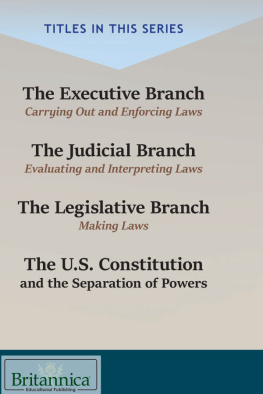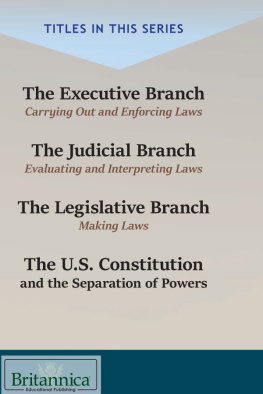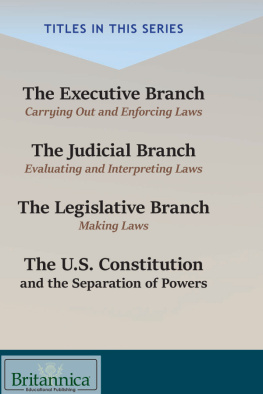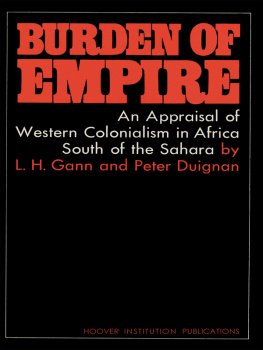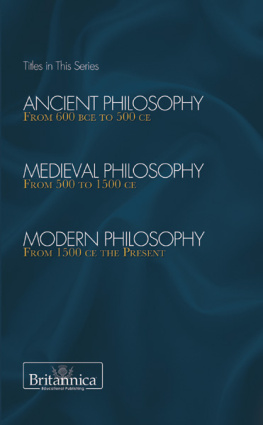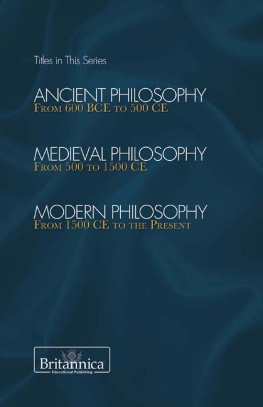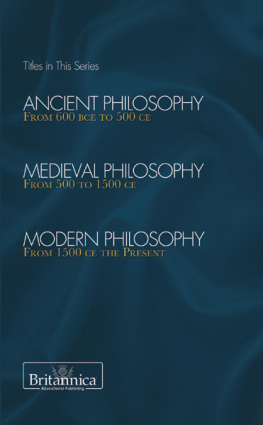Brian Duignan - The 100 Most Influential Philosophers of All Time
Here you can read online Brian Duignan - The 100 Most Influential Philosophers of All Time full text of the book (entire story) in english for free. Download pdf and epub, get meaning, cover and reviews about this ebook. year: 2009, publisher: Rosen Education Service, genre: Science. Description of the work, (preface) as well as reviews are available. Best literature library LitArk.com created for fans of good reading and offers a wide selection of genres:
Romance novel
Science fiction
Adventure
Detective
Science
History
Home and family
Prose
Art
Politics
Computer
Non-fiction
Religion
Business
Children
Humor
Choose a favorite category and find really read worthwhile books. Enjoy immersion in the world of imagination, feel the emotions of the characters or learn something new for yourself, make an fascinating discovery.
- Book:The 100 Most Influential Philosophers of All Time
- Author:
- Publisher:Rosen Education Service
- Genre:
- Year:2009
- Rating:4 / 5
- Favourites:Add to favourites
- Your mark:
- 80
- 1
- 2
- 3
- 4
- 5
The 100 Most Influential Philosophers of All Time: summary, description and annotation
We offer to read an annotation, description, summary or preface (depends on what the author of the book "The 100 Most Influential Philosophers of All Time" wrote himself). If you haven't found the necessary information about the book — write in the comments, we will try to find it.
The 100 Most Influential Philosophers of All Time — read online for free the complete book (whole text) full work
Below is the text of the book, divided by pages. System saving the place of the last page read, allows you to conveniently read the book "The 100 Most Influential Philosophers of All Time" online for free, without having to search again every time where you left off. Put a bookmark, and you can go to the page where you finished reading at any time.
Font size:
Interval:
Bookmark:
THE 100 MOST INFLUENTIAL PHILOSOPHERS OF ALL TIME
THE BRITANNICA GUIDE TO THE WORLDS MOST INFLUENTIAL PEOPLE
EDITED BY BRIAN DUIGNAN, SENIOR EDITOR, RELIGION AND PHILOSOPHY

Published in 2010 by Britannica Educational Publishing
(a trademark of Encyclopdia Britannica, Inc.)
in association with Rosen Educational Services, LLC
29 East 21st Street, New York, NY 10010.
Copyright 2010 Encyclopdia Britannica, Inc. Britannica, Encyclopdia Britannica,
and the Thistle logo are registered trademarks of Encyclopdia Britannica, Inc. All
rights reserved.
Rosen Educational Services materials copyright 2010 Rosen Educational Services, LLC.
All rights reserved.
Distributed exclusively by Rosen Educational Services.
For a listing of additional Britannica Educational Publishing titles, call toll free (800) 237-9932.
First Edition
Britannica Educational Publishing
Michael I. Levy: Executive Editor
Marilyn L. Barton: Senior Coordinator, Production Control
Steven Bosco: Director, Editorial Technologies
Lisa S. Braucher: Senior Producer and Data Editor
Yvette Charboneau: Senior Copy Editor
Kathy Nakamura: Manager, Media Acquisition
Brian Duignan: Senior Editor, Religion and Philosophy
Rosen Educational Services
Jeanne Nagle: Senior Editor
Nelson Sa: Art Director
Nicole Russo: Designer
Introduction by Stephanie Watson
Library of Congress Cataloging-in-Publication Data
The 100 most influential philosophers of all time / edited by Brian Duignan.1st ed.
p. cm.(The Britannica guide to the worlds most influential people)
In association with Britannica Educational Publishing, Rosen Educational Services.
Includes Index.
ISBN 978-1-61530-057-0 (eBook)
1. Philosophy. 2. Philosophers. I. Duignan, Brian. II. Title: One hundred most influential
philosophers of all time.
B72.A15 2010
109.2dc22
2009029773
Cover credit: Real Academia de Bellas Artes de San Fernando, Madrid, Spain/The Bridgeman Art Library/Getty Images

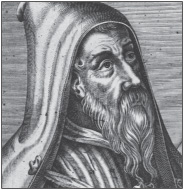
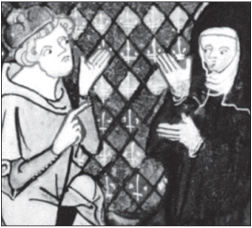

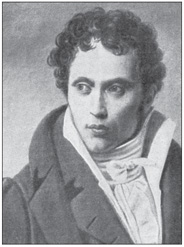

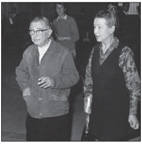
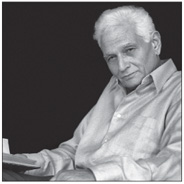
L ife doesnt come with an instruction manual. Each person is released into the world in the same way, naked and unaware, left to find his or her own way to some sort of understanding about the mysteries of their own existence. Once people grow and learn enough, they naturally start asking questions. How did the worldand universecome to exist? Why am I here? What is my purpose in life? What happens after I die? People began their search for meaning very early on in the course of human history. The ancient Greeks developed an entire mythology of gods and goddesses to answer many of lifes most fundamental questions.
Yet there were some who were not satisfied with the explanation that every major human event, from birth to death, was dictated by the whims of the gods. Men like Plato (429347 BCE), Socrates (469399 BCE), and Aristotle (384322 BCE) preferred a more rational approach. Long before the age of modern science, they used reason to understand why things happened as they did, and to find some sort of order and security in what was an often chaotic and dangerous world. They questioned, probed, and refused to accept commonly held beliefs. Through their teachings, they became the towering figures of ancient Greek philosophy.
Theories of existence, knowledge, and ethics have been advanced and argued since the time of the ancient Greeks. Travelling through the pages of this book, you will discover the ideas that shaped the history of philosophy, and the menand womenwho gave birth to those ideas. In addition to Plato and Socrates, Aristotle, Thomas Aquinas, Ren Descartes, Arthur Schopenhauer, Jean-Paul Sartre, and Simone de Beauvoir are just a few of the philosophic luminaries profiled in this title.
In the simplest terms, philosophy is about thinking. French philosopher Ren Descartes (15961650) defined his entire existence in those terms. I think, therefore I am, he famously proclaimed. The concept of a philosopher practicing his craft might bring to mind the famous Auguste Rodin sculpture, The Thinker, which depicts a man with chin on hand in deep contemplation. Yet philosophers do much more than sit around thinking and asking questions. They engage in fundamental discussions about nature, society, science, psychology, and ethics. They develop critical ideas about the way people live, and the way they should live.
There are three major fields of philosophical investigation. The first is ontology, which is the study of existencewhat applies neutrally to everything that is real. Some of the earliest philosophers attributed human existence to the natural elements: earth, air, fire, and water. The Greek philosopher Heracleitus (lived around 500 BCE) thought it was fire that was the essential material uniting all things. The opposing forces of igniting and extinguishing fire gave balance and order to an otherwise random and disordered world.
The Greek scholar Democritus (c. 460c. 370 BCE) found the basis of life in an element of a different kindthe atom. He believed not only that atoms made up everything in the universe, but also that the movement of atoms was responsible for every change or event that occurred (he had unknowingly discovered the foundation of modern physics). Democritus assumed that because atoms cannot be created or destroyed, nothing (and no one) can die in the absolute sense.
Other philosophers have claimed that the basis of all things is not elements, but mathematics. Pythagoras (c. 570c. 490 BCE), familiar to high school math students for the theorem of right triangles (a2 + b2 = c2) thats associated with his name, surmised that numbers gave an underlying harmony and order to everything in existence.
When it came to answering the question of existence, philosophy and religion often overlap. Some philosophers believed firmly in the religious ideal of God as the creator of all things. They have even used philosophy to prove the existence of God. The Archbishop St. Anselm of Canterbury (10331109 CE) argued that God must exist because it is impossible for humans to conceive of the greatest possible being as not existing. St. Augustine (354430 CE) claimed that it is only through the contemplation of, and connection with, God that humans can find real happiness.
Next pageFont size:
Interval:
Bookmark:
Similar books «The 100 Most Influential Philosophers of All Time»
Look at similar books to The 100 Most Influential Philosophers of All Time. We have selected literature similar in name and meaning in the hope of providing readers with more options to find new, interesting, not yet read works.
Discussion, reviews of the book The 100 Most Influential Philosophers of All Time and just readers' own opinions. Leave your comments, write what you think about the work, its meaning or the main characters. Specify what exactly you liked and what you didn't like, and why you think so.


